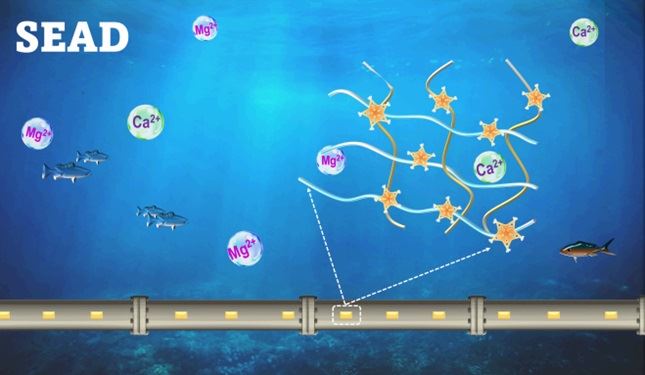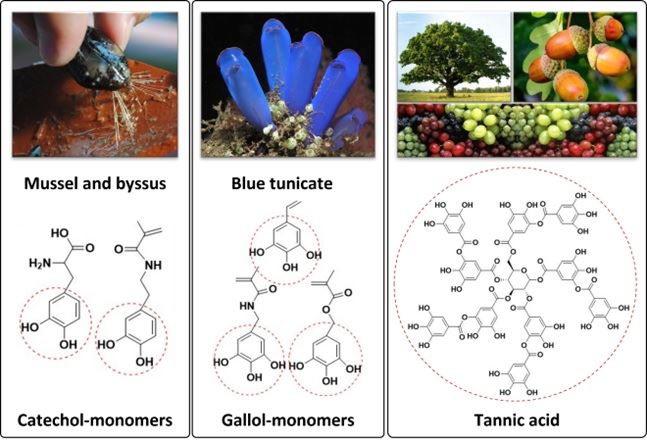Compared to the widely reported mussel-inspired catechol-based adhesives, the proposed pyrogallol compounds endow significant advantages in terms of low cost, green resources, and enhanced durability via multiple interactions with ions in seawater. The project enables new technology and novel adhesives for seawater adhesion in marine operations. By developing environmentally friendly adhesives from materials derived from plants that facilitate fast adhesion and long-lasting performance, the project contributes to UN's sustainable development goals 9, 12, and 14.
Sustainable underwater adhesion is a significant challenge. This is especially apparent in seawater with its elevated ion content. Seawater adhesives have broad applications in marine industry such as underwater robotics, underwater repair, and subsea sealants. Whereas currently the performance and durability of seawater adhesives is very limited.
The SEAD project aims to develop novel environmentally friendly materials that can act as durable and tunable adhesives for targeted applications in seawater. This can be used for repair of sub-sea structures, attachment of sensors, etc. In addition, we aim to develop reversible adhesion (post-it note effect) for the feet of marine robots and other non-permanent attachments. In order to achieve the desired effect, we will combine knowledge from the mechanisms marine life utilizes to stick to surfaces under water (biomimicking) with advanced chemistry and adhesion physics.
The project is financed by the Research Council of Norway under the program Researcher Project for Technological Convergence Related to Enabling Technologies. The project is a collaboration between Østfold University College, Norwegian University of Science and Technology, and SINTEF.


